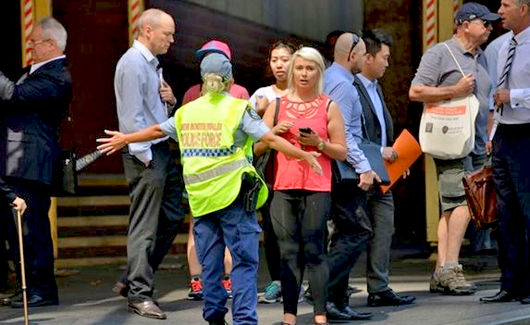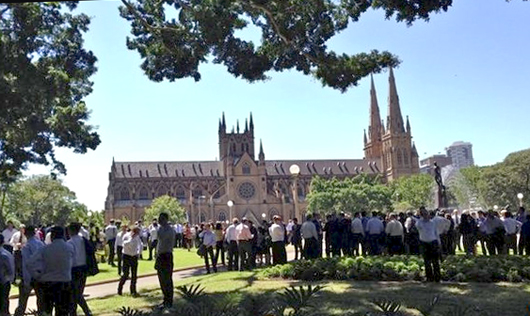The death toll in China's coronavirus rose sharply to 425 with 64 deaths on Monday alone while 3,235 new confirmed cases were reported, taking the number of those infected with the deadly disease to 20,438, Chinese health authorities said on Tuesday.
The 64 people who died on Monday were all from the Hubei province, the epicentre of the virus, China's National Health Commission said.
Also, 3,235 new confirmed cases of novel coronavirus infection were reported, a big increase in a day.
Another 5,072 new suspected cases were reported on Monday, said the commission, adding that 492 patients became seriously ill.
The commission said that 2,788 patients remained in severe condition and 23,214 people were suspected of being infected with the virus, a pointer that it is increasingly turning virulent.
The overall confirmed cases on the Chinese mainland had reached 20,438 by the end of Monday, the commission said, noting that a total of 425 people had died of the disease.
A total of 632 people had been discharged from hospital after recovery, state-run Xinhua news agency reported As the virus spreads from human to human, 221,015 close contacts had been traced, with 171,329 others still under medical observation.
By the end of Monday, 15 confirmed cases had been reported in Hong Kong, eight in the Macao and 10 in Taiwan.
The Philippines reported the first overseas death from the virus on Sunday while 148 cases have been reported from abroad.
India has reported three cases of the coronavirus. All the three patients from Kerala recently returned from the affected Wuhan city.
Currently, 647 Indians and seven Maldivians who have been evacuated from Wuhan and Hubei are in 14-day quarantine at a medical camp in Manesar, near Delhi.
As the virus continued to spread at an alarming rate, Chinese President Xi Jinping on Monday warned officials of punishment if they shirked responsibility in tackling the virus outbreak.
On Monday, China has opened a 1,000-bed hospital built in record nine days in Wuhan city and started trials for new drug to contain the virus and is set to open another 1,300 bed hospital next to it on Wednesday.
The ruling Communist Party of China on Monday held its political bureau meeting presided by President Xi to review the steps being taken on various fronts to halt the spread of the deadly virus.
The outcome of the epidemic prevention and control directly affects people's lives and health, the overall economic and social stability and the country's opening-up, Xi said.
"Those who disobey the unified command or shirk off responsibilities will be punished," Xi was quoted as saying by the state-run Xinhua news agency.
Xi said that the party and government leaders supervising them would also be held accountable in severe cases.
Chinese armament firms, including those building aircraft carrier and military aircraft, have postponed planned work in order to concentrate on controlling the risk of coronavirus, state-run Global Times reported.
Noted Chinese health expert Zhong Nanshan has said that based on the fresh evidence, the novel coronavirus, which is spreading rapidly in China and the world, may reach its peak in the next 10 to 14 days, contrary to earlier estimates of climaxing sooner.
This means that the cases would drastically increase in the next two weeks before slowing down.
Also, China has begun clinical trials to test a drug to treat the patients of the coronavirus which till now has no cure.
Currently, patients are being treated with a combination of antivirals and other measures, as scientists race to find a vaccine.
Some reports said drugs to treat HIV too was being tried to treat the patients.
The experimental antiviral drug, Remdesivir, to be tested in field trials is developed by US-based Gilead Sciences. It is aimed at treating infectious diseases such as Ebola and SARS, South China Morning Post reported.
It was given to the first US patient last week - a 35-year-old man whose condition appeared to improve within a day, it said.








Comments
??????? ?? ?????. ????? ??? ???? ??????.
??? ??? ???????, ??? ???????? ?? ???? ???? ??????????? ???????????
?????????.
my web-site: ??????-?????.xn--p1ai: https://xn----7sbvehqfibu7aj.xn--p1ai/
Add new comment